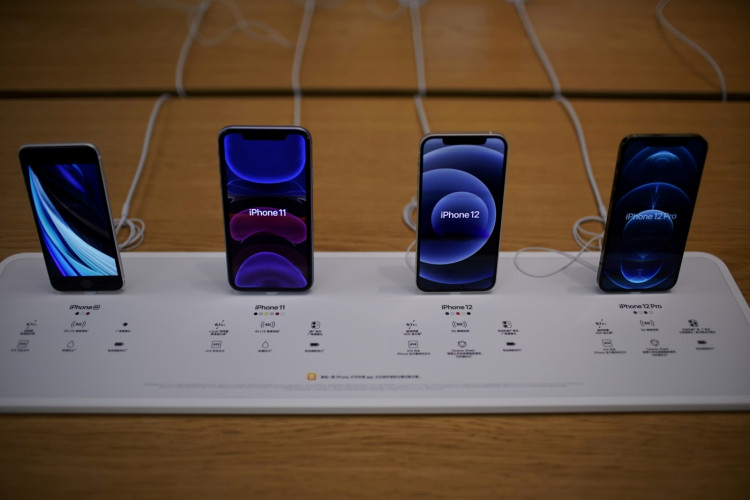On September 12, France's National Frequency Agency (ANFR) announced that tests revealed the Apple iPhone 12's electromagnetic radiation levels exceeded European Union standards. As a result, Apple has been instructed to temporarily halt sales of this model in France. Apple responded by emphasizing that the iPhone 12 has been certified by multiple international institutions and meets global radiation standards.
The ANFR, as the regulatory body for radio equipment, recently tested a batch of mobile phones, including the iPhone 12, to check their Specific Absorption Rate (SAR) compliance. SAR quantifies the amount of radio frequency energy absorbed by the body when using wireless electronic devices. The test results showed that while the iPhone 12's trunk SAR met the EU standard of 2 W/kg, its limb SAR was recorded at 5.74 W/kg, exceeding the EU's limit of 4 W/kg.
The agency has ordered Apple to remove the iPhone 12 from the French market starting September 12, 2023. For units already in circulation, Apple must take corrective measures to ensure compliance. If not, a recall of these devices might be mandated.
Jean-Noel Barrot, France's ministerial representative for digital affairs, indicated that a software update could address the issue. Apple has a 15-day window to update the relevant phone software to meet standards. If Apple fails to address this flaw, he might call for a recall of all iPhone models in the French market.
However, Apple disagrees with the French authorities' findings. In a statement to the media, Apple said the iPhone 12, launched in 2020, has received certifications from multiple international bodies and meets global radiation standards. Apple has provided results from both its own and third-party labs, asserting the phone's compliance with ANFR requirements and is challenging the agency's findings.
Media reports suggest Apple has advised its technical support staff to remain silent on the issue and not to proactively provide any information. If customers inquire about the French government's claims regarding radiation levels, staff should state they have no information to share. Employees are also instructed to decline customer requests for returns or exchanges unless the phone meets Apple's standard return policy.
The decision in France has already resonated across the EU. Belgium's Deputy Minister for the Digital Economy said on Thursday that they would ask the telecommunications regulatory agency to analyze potential health risks associated with the iPhone 12. Dutch digital regulators said they are reviewing the French report claiming the iPhone 12 violates EU radiation exposure limits. Germany's Federal Network Agency (BNetzA) noted that "France's procedure has a guiding effect for the whole of Europe" and similar procedures might be initiated in Germany. The German Federal Office for Radiation Protection (BfS) also stated that France's decision could impact the entire EU. Most EU countries are waiting for their regulatory bodies to assess the situation before taking immediate action.
It's worth noting that China's current national standard GB21288-2007 specifies a SAR exposure limit consistent with EU standards. Whether China will follow up on this incident remains to be seen.
The health issues caused by the "non-ionizing radiation" of mobile phones have yet to be conclusively determined. Claims that mobile phone radiation is carcinogenic have been widespread but remain unconfirmed. The International Commission on Non-Ionizing Radiation Protection (ICNIRP), responsible for setting global SAR guidelines, states that exceeding set limits could lead to health effects like burns or heatstroke, depending on exposure duration.
In the long run, safety standards related to electromagnetic radiation from electronic products are becoming stricter. The national standard GB21288-2022, which will be officially implemented on January 1, 2024, includes previously uncovered devices like wearable devices and portable mobile terminals in SAR compliance requirements.






